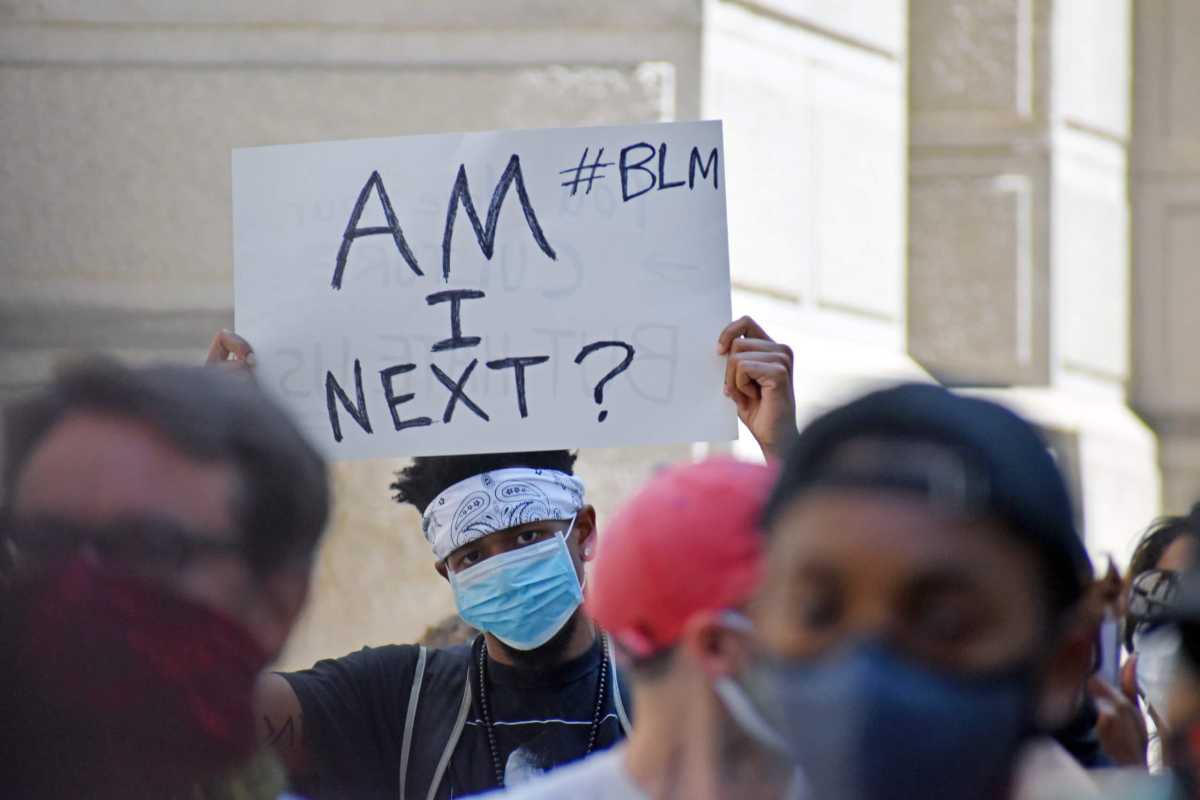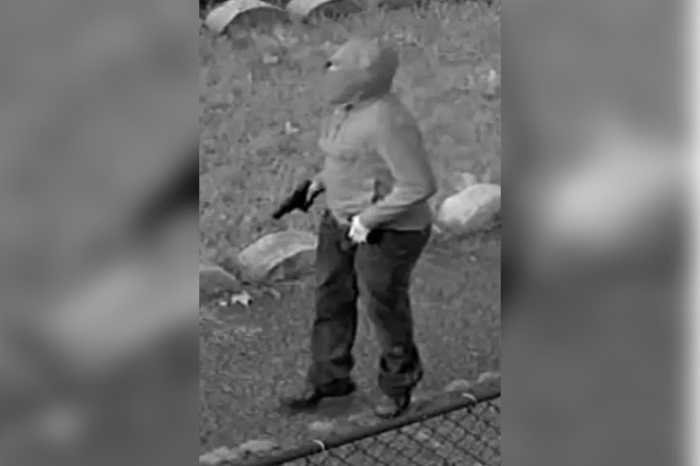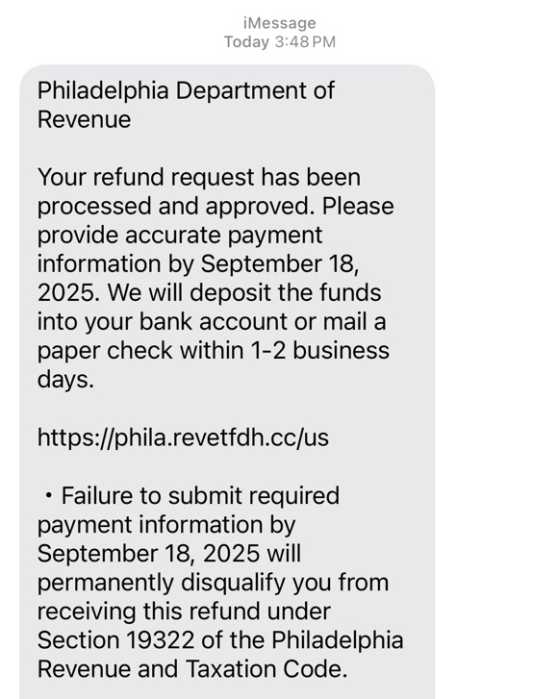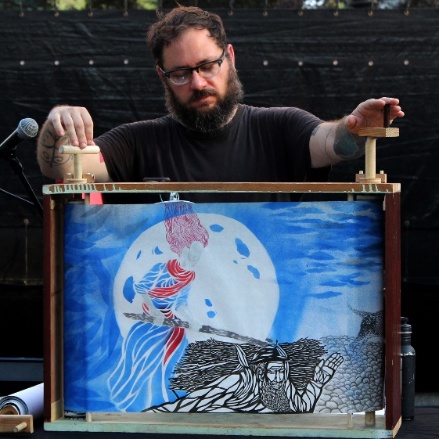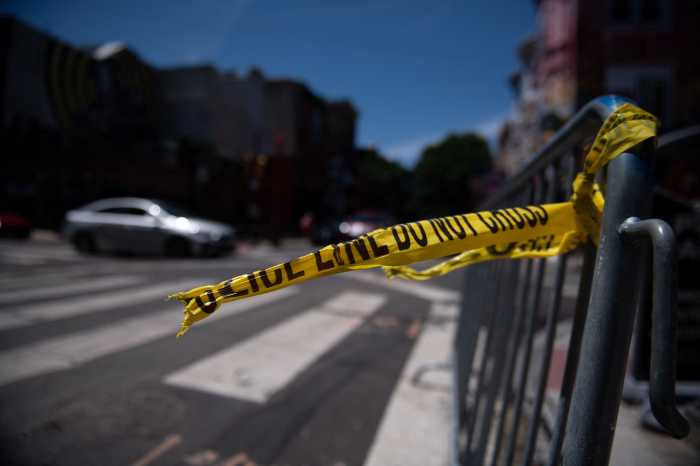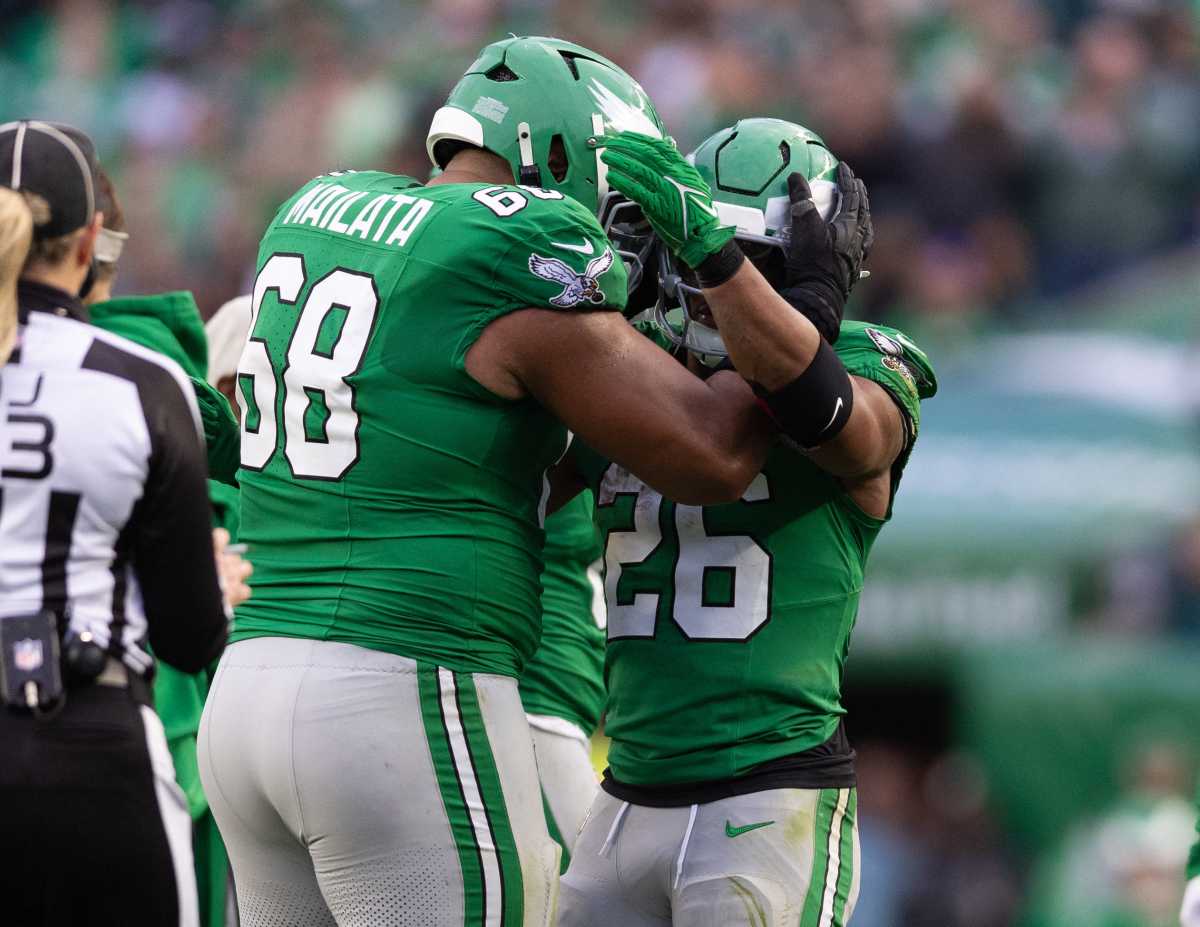2020 was nothing if not newsworthy.
Especially in Philadelphia, which saw an accelerating homicide rate, election-related hoopla and passionate protests following the deaths of George Floyd and Walter Wallace Jr., alongside an all-consuming global pandemic.
Here, in no particular order, is a review of the city’s biggest news stories over the course of the past year.
Virus hits Philly
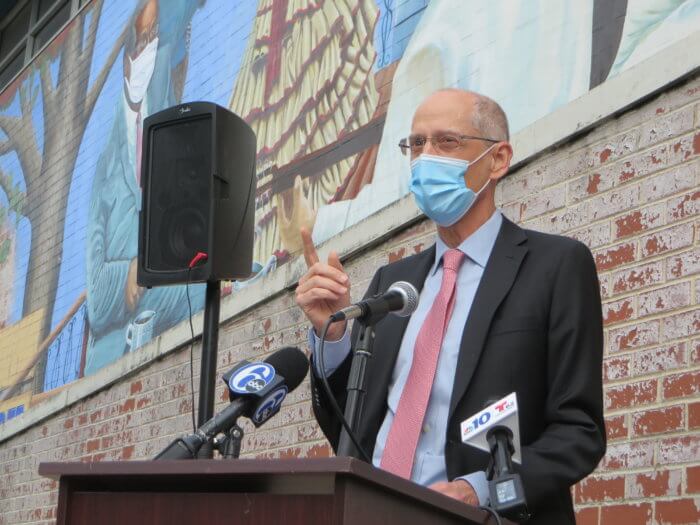
Philadelphia’s first case of the novel coronavirus was diagnosed March 10, and, since then, public health officials have attempted to control its spread and businesses have been struggling to adapt to restrictions.
Non-essential businesses were ordered to shut down March 16, and, a few days later, Mayor Jim Kenney issued a stay-at-home order for residents.
Cases rose, and people were admitted to an improvised field hospital at Temple University’s Liacouras Center.
Kenney was criticized after being photographed eating indoors at a Maryland restaurant — an activity that was, at the time and is now again, banned in Philadelphia — and his administration also drew flak for trash collection delays.
COVID-19 measures were eased as spring turned to summer, and restaurants got creative, setting up “streeteries” and other innovative outdoor dining set-ups. Others, with financial pressures mounting, were forced to close for good.
A second, more limited shutdown was imposed in November, and experts are now fretting about a possible post-Christmas-and-New Year’s spike.
Through Saturday, nearly 90,000 Philadelphia residents had tested positive since the beginning of the pandemic, and 2,356 have died of virus-related causes.
Vaccines arrived in the final month of the year, providing a glimmer of hope as the city prepares for 2021.
Black Lives Matter protests rock the city
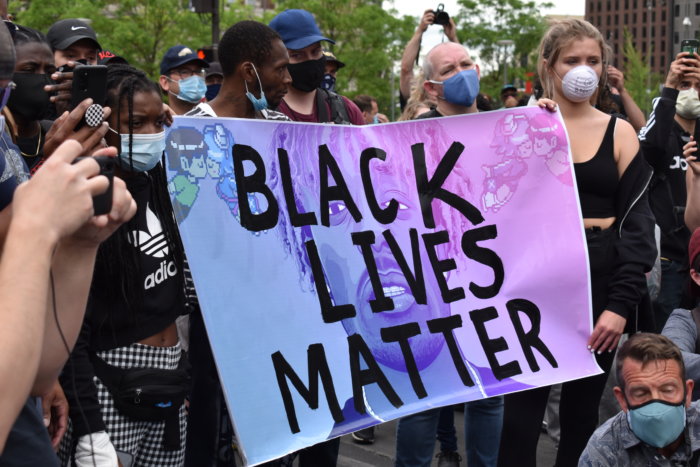
In the days after officers killed George Floyd in Minneapolis, people outraged and frustrated about police brutality and systemic racism flooded the streets of Philadelphia.
The demonstrations were accompanied by looting, clashes with police, the arrival of the Pennsylvania National Guard and days of curfews.
A statue of former Mayor Frank Rizzo, which activists argued was a symbol of the city’s history of racism, was removed from outside the Municipal Services Building. Rizzo’s mural in the Italian Market was also painted over.
Perhaps most controversially, law enforcement used tear gas and rubber bullets on protesters who ran out onto the Vine Street Expressway and on people in a residential area of West Philadelphia.
Meanwhile, so-called ‘vigilantes’ with bats patrolled Fishtown and guarded a shopping center in South Philadelphia with the tacit approval of police.
Under pressure, City Council and the Kenney administration agreed to a budget that scrapped a planned $19 million increase to the police budget and shifted another $14 million worth of programs to another department.
Just last Wednesday, an independent after-action review was released, finding that the Philadelphia Police Department was “simply not prepared” to handle mass demonstrations in multiple locations. The report also included 77 recommendations for improvements.
It highlighted a summer of protest, as people marched for personal protective equipment for frontline workers, affordable housing for the homeless, Black LGBTQ protections, prison reform and a host of other issues.
Columbus takes center stage
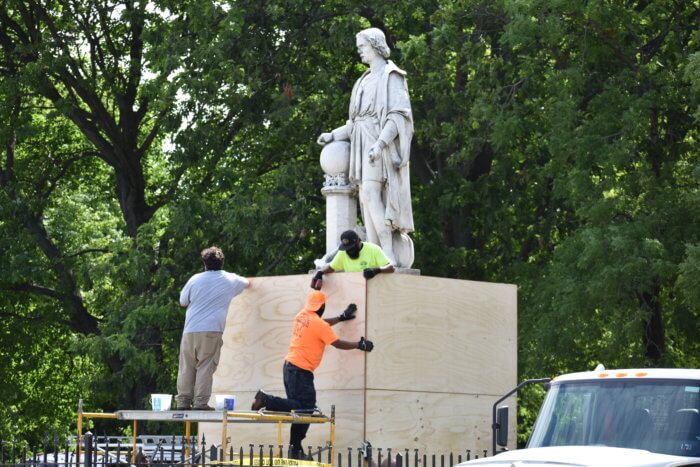
While debate was raging over Confederate monuments in the South, in deep South Philadelphia, Christopher Columbus got all the attention.
Admirers of the Italian explorer showed up to ‘defend’ his likeness at Marconi Plaza, near Broad and Oregon, and the statue became a cultural flashpoint.
Scuffles broke out between Columbus’ supporters and detractors, and city workers built a wooden box to cover the statue.
Kenney pushed to have the monument removed, and, in August, the Philadelphia Art Commission approved the mayor’s request, ordering the statue be transported to a storage facility while officials work to find a permanent home.
Plywood still covers the statue at Marconi Plaza, as some neighbors wage a battle in court to overturn the city’s decision.
Wallace shooting sparks further outrage
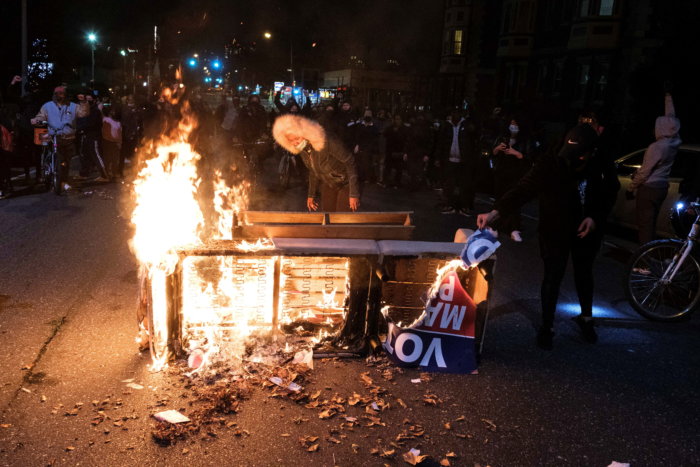
Calls for police reform ramped up again in the fall, when officers fatally shot 27-year-old Walter Wallace Jr. in West Philadelphia.
Wallace, according to his family, had mental health problems, and, when police arrived, he strode out of his parents’ house with a blade. Two PPD officers, 25-year-old Sean Matarazzo and 26-year-old Thomas Munz, fired 14 shots at Wallace after repeatedly ordering him to drop the knife.
Authorities released body-worn camera footage of the shooting, a first for the PPD. In the video, one of the officers tells his partner to “shoot him” several seconds before gunfire is heard.
Wallace’s death sparked conversations about how officers handle individuals with mental health issues, and whether police should be responding to those types of calls at all.
In addition, some wondered if he would still be alive had Matarazzo and Munz been equipped with tasers.
It also rekindled the civil unrest and looting of the summer. On one night, a crowd of around 1,000 people ransacked stores along Aramingo Avenue in Port Richmond, across town from the base of protest activity.
The District Attorney’s Office continues to investigate the shooting, and the PPD is also conducting an internal probe.
The road to the White House ran through Philly
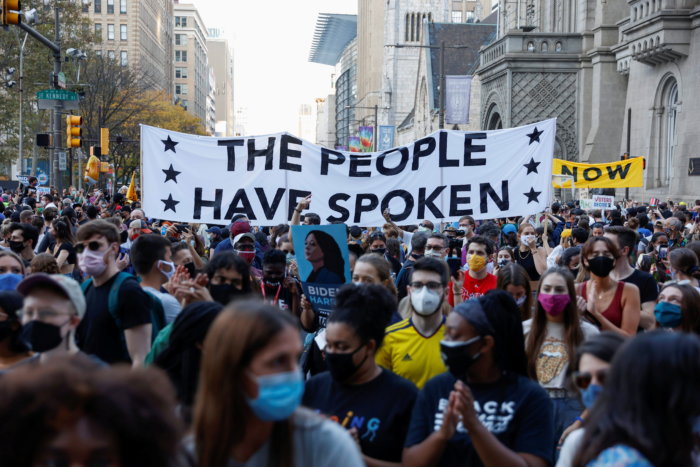
If you spent any time in Philadelphia prior to the Nov. 3 election, you were inundated.
Get-out-the-vote messages were plastered on telephone poles, embedded in murals and even carried by banner planes.
Many voted by mail for the first time due to the pandemic, and the world watched as election workers counted ballots 24 hours a day inside the Pennsylvania Convention Center.
Outside, people rallied in what was almost a party-like atmosphere, urging officials to make sure to “count every vote.”
Two men, Joshua Macias, 42, and Antonio Lamotta, 61, were arrested near the Convention Center after driving from Virginia with guns and ammunition.
Results from Philadelphia helped push the Democratic nominee, now-President-Elect Joe Biden, over the edge. The Pennsylvania native made the city an integral part of his campaign, holding several rallies here in the days before polls opened.
President Donald Trump and his Republican allies subsequently launched a series of unsuccessful legal efforts to challenge the results in the state.
Near-record homicide rate sparks search for answers
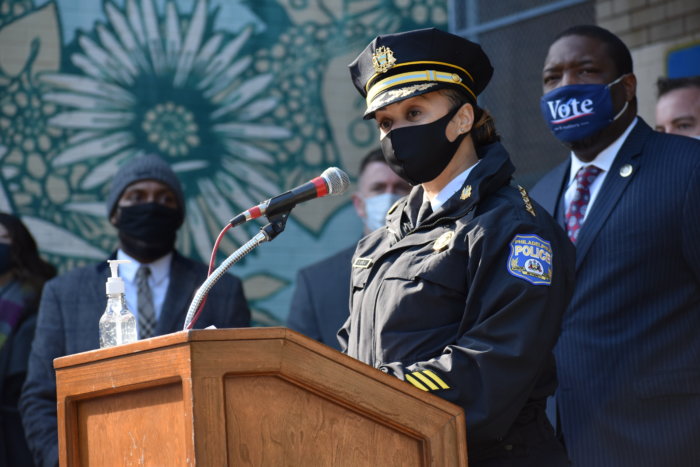
Nothing, including COVID-19, has been as unrelenting as the steady stream of homicides and shootings this year in Philadelphia.
As of Sunday, 483 people have been killed, about 40% more than at this point last year and a higher total than any year since 1990. Shooting incidents, which include when a gun is fired and no one is hit, are up nearly 67% compared to 2019.
Among the victims of the violence were 7-year-old Zamir Jones, who died after being caught in the crossfire while playing on his front porch; Dominique “Rem’mie” Fells, a 27-year-old transgender woman whose dismembered body was found in the Schuylkill River; and Police Cpl. James O’Connor, who was killed while serving a homicide warrant in Frankford.
What is driving the dramatic uptick in violence is unclear, but there’s been no shortage of finger-pointing.
Some, such as Trump-appointed U.S. Attorney William McSwain, have blamed District Attorney Larry Krasner, who has been portrayed as soft on crime. Others have pointed to the PPD for not arresting enough of the shooters.
Kenney has frequently brought up what he says is the unfettered flow of firearms into the wrong hands.
Similar crime trends have been documented in some other large cities around the country.
Funny things happen in Philadelphia
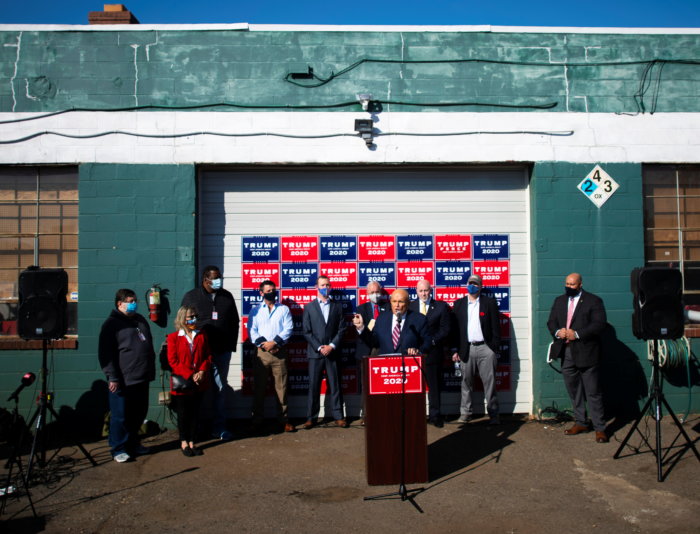
Even in a year as dire as 2020, Philadelphia has produced quite a few meme-worthy tidbits and stories that will leave us laughing for years to come.
Back in February, thousands watched on TV, and others from their front stoops, as a man in a stolen ambulance evaded police for more than an hour on the streets of Northeast Philly.
Philadelphians were initially angered by Trump’s comment, in the first presidential debate, that “bad things” happen in the city. It didn’t take long for the remark to show up on T-shirts and other merchandise, and it was adopted as a badge of honor by Trump’s opponents when Philly helped send Biden to the White House.
On a related note, Four Seasons Total Landscaping, a family-run business in Northeast Philly, gained fame after Trump’s legal team, led by Rudy Giuliani, appeared at a press conference to spout unfounded election conspiracies.
Four Seasons, which is nestled near an adult book store and a crematorium on State Road, has since gotten in on the joke, selling merch and sharing memes on social media.
“Joey Meatballs” entered the city’s lexicon just last month, following a mafia bust that ended in federal charges for 15 reputed wiseguys. The moniker, which belongs to 73-year-old Anthony Gifoli, went viral.
Honorable mentions: homeless camps bring attention to need for housing; return of the spotted lanternfly; non-stop fireworks/ATM explosions; the return of Oskar Lindblom; a new archbishop in town (Nelson Perez); a new top cop (Danielle Outlaw); Union lift first trophy; Roosevelt Boulevard gets speed cameras; the fall of Carson Wentz.



